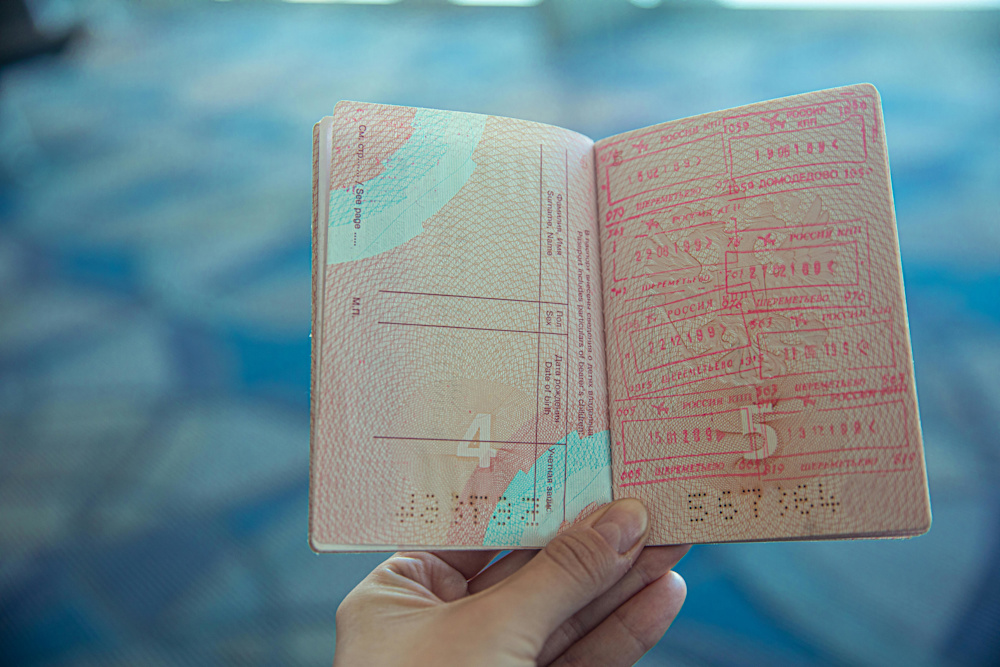Updated February 12, 2025
Common Residence Card and Visa Issues in Japan (And How to Avoid Them)
Living in Japan can be an incredibly enriching and rewarding experience. But navigating the country's residence system is often challenging at first.
Beyond merely renewing or extending your resource status, you might encounter real-life situations where your current visa no longer fits your circumstances.
Maybe you came to Japan as a tourist and decided to stay longer, suddenly lost your job, or are separating from a Japanese spouse and wonder what happens next. These are all common scenarios a resident can face at some point.
In this article, we’ll walk you through a variety of residence card and visa-related issues in Japan. We’ll explain what steps to take and share some vital information so that you don't lose your status or risk fines and penalties.
In this article: 📝
Visa Problems in Japan: What Are The Most Common Visa-Related Challenges?
When we talk about visa issues, we’re not just referring to the standard process of renewing your current visa or updating your address. Foreign residents often run into much more nuanced situations that can affect their legal status.
Here are some typical examples:
Switching from “Temporary Visitor” to a long-term residence visa
Job loss or change of employer
Changes in family circumstances
Traveling abroad and re-entering Japan
Overstaying your visa or inadvertently letting your visa expire
These situations typically involve changing your visa category, which is called a change of status of residence, or taking action to keep your current visa valid.
Now, let's look at each case in more detail, providing guidance and reference links to official resources.
Case #1: Changing from a “Temporary Visitor” Visa to a Residence Visa
Maybe you came to Japan for tourism or to visit family, but now you want to stay longer. If so, you need to switch from a “Temporary Visitor” status to an appropriate residence visa, which can be a work visa, student visa, or dependent visa, depending on your situation.
However, it’s important to note that if you’re in Japan on a short-term stay visa, such as a tourist visa, you cannot switch to a residency status without leaving the country and applying for the appropriate visa through the Japanese embassy in your home country.
That being said, there are a couple of instances where it is possible to switch from a temporary visitor status to a resident. This is only possible in the following cases:
Marrying a Japanese person or a permanent resident, or giving birth: If you marry a citizen or a resident, or give birth during your time here on a short-term visa, you might be eligible to change your visa status to the “Spouse or Child of a Japanese National Visa” or “Long-term resident.”
Having an accident or falling ill: If you become ill or have an accident, and are in need of long-term treatment in Japan while on a short-term visa, you may be able to switch to “Designated Activities (Medical)” residency status.
In either case, the process is called a “change of status of residence,” and it can be done at the nearest Immigration Services Bureau.
Here are the key procedures you’ll need to follow:
Gather necessary documents such as passports, photos, application forms, or any other supporting documents from your sponsor or employer.
Submit these documents to the immigration services Bureau before your temporary visitor status expires.
Wait for the results, which can take anywhere from a few weeks to a couple of months.
Once your visa is approved, you'll have to apply for a residence card, called Zairyu Card.
We already have a detailed article on the Zairyu card and how to obtain it, so check it out once you’re done here.
Case #2: What Happens If You Get Fired on a Work Visa in Japan?
Losing your job can feel overwhelming anywhere, but as a foreigner in Japan, you also need to consider the impact on your residence status.
So, How Long Can I Stay in Japan After Quitting My Job?

Getting fired or quitting a job does not automatically cancel your visa on the spot. Generally, if you have time left on your work visa, your stay in the country is still considered “legal” for that duration.
Your Options: What Happens If You Lose Your Job In Japan?
If you find yourself worrying about what happens if you lose your job in Japan, you have three options:
Find new employment quickly: You can usually remain in Japan as long as your current visa is valid, provided you still fall under the same job category. All work visas except for the “Technical training intern” visa allow you to switch jobs freely as long as you stay within the scope of your original work visa. For instance, if you have an Engineer/Specialist in Humanities visa, you can look for a new job in a relevant field without needing to leave the country immediately.
Switch to a different visa category: If you cannot find a new role in the same job category, you might want to consider changing to a different residence status. For instance, a spouse visa if you're married to a Japanese national or a student visa if you plan to enroll in a language school can be a viable option.
Short-term designated activities: Some people apply for a designated activities visa that allows certain activities like job hunting, but the eligibility of this visa can vary. This visa can also allow you to work part-time (up to 28 hours/week) while looking for a job.
How Long Can You Be Unemployed In Japan?
Please keep in mind that while your work visa is still valid until its expiration date, if you don’t search for new employment or engage in activities designated on your visa for longer than three consecutive months, you may face visa cancellation.
What’s more, staying unemployed for extended periods of time without seeking other valid activities can also raise some red flags at the immigration office during visa renewal and extension processes. So, it’s important to stay proactive upon being fired.
You should also tell the immigration office about any significant changes to your circumstances as soon as possible. Remember that deliberately failing to report such changes can lead to future complications, so it's important to report that you have resigned or lost your job right away.
In most cases, the immigration office will want you to find a new job within around three months.
Case #3: What Happens To A Spouse Visa After Divorce In Japan? (Divorce, Death, and Separation)
Another common case that might affect your visa status in Japan is related to divorce and separation. However, in some cases, such as the death of a spouse, you might also need a new visa. Let's talk about separation first.
Living Separately From a Japanese Spouse
If you have a spouse visa based on marriage to a Japanese national but you live separately, the situation can get quite complicated.
When issuing or renewing your visa, the immigration office considers criteria such as the genuineness of your marriage, whether you're cohabiting in the same living space, and whether you’re supporting each other financially.
They want to make sure the visa is only issued to those who truly fit the criteria and need it accordingly. This means that if you have a spouse visa and are living separately from your spouse for whatever reason, as far as the immigration Bureau is concerned, you are in the process of separation.
While the exact rules vary, extended separation without legitimate reasons can affect future renewals or changes to your residence status. So, if you find yourself in this situation, it's a good idea to talk to an immigration specialist to maintain your legal status in Japan.
Divorce or Death of a Spouse: What Happens If You Get Divorced In Japan?

A spouse’s death or divorce can alter your eligibility for this visa category. Here's what you should know:
It's important to report any major life changes, such as a divorce or death of a spouse, to the immigration office within two weeks. The exact timeline for this can vary, so check with the immigration office to be sure.
If you hold a spouse visa, which is the Spouse or Child of a Japanese National Visa, and no longer qualify for it, you will need to switch to another residence status. Usually, upon reporting the death of your spouse, you have six months to figure out your visa/residence situation in Japan. During this time, you can switch to a long-term resident or designated activities visa, which are the most common routes. You can also find a job and get a work visa, if your personal situation allows.
To learn more about changing your status of residence in Japan, refer to our guide on the matter.
Case #4: If You Marry a Person With Japanese Nationality
On a happier note, some foreign residents may also marry a Japanese national during their time here. While you can switch to a spouse or child of a Japanese national visa, you'll be glad to know that you're not required to do so if you already hold a valid Japanese visa.
It makes sense, after all. Why would you need a specific type of visa if you're already in Japan legally?
Besides, if you stay married long enough, you’ll be eligible for permanent residence and, eventually, citizenship. So, if you have a solid work visa, changing to a spouse visa might feel like unnecessary paperwork.
All that being said, some people still prefer the spouse visa for its flexibility, even if they have a work visa in Japan. For instance, the spouse visa allows you to work in different fields without obtaining explicit permission from immigration, which isn’t possible for some work visas.
So, if you intend to remain in Japan for the long term, you might find it simpler to switch to a spouse visa, particularly if you’d like to have the freedom to change jobs or start working freelance.
If you’re considering sealing the deal with your loved one and are interested in finding out more about getting married in Japan, our dedicated guide will walk you through the whole process.
Common Issues and Questions Related to Zairyu (Residence) Card
Your Zairyu Card is your official residence card in Japan. It's essential for just about anything from opening a bank account and renting an apartment to signing up for a mobile phone contract.
Here are some of the most common questions and issues regarding the residence (Zairyu) cards.
What To Do If You Give Birth to a Child in Japan
To ensure your new baby stays in Japan legally, these are the steps you need to take.
Register the birth at your City Hall: You must file a birth notification (shussei todoke) at your local city office within 14 days of your baby's birth. This step is crucial for obtaining an official Japanese birth certificate, called a shussei shoumeisho, and recording the birth in the family register. Even though your child won't be recorded in a traditional Japanese family registry, they will still receive an official record of birth.
Apply for your child's status of residence: A child born in Japan to foreign parents can remain in the country without a resident status for up to 60 days after birth. However, if you plan for your baby to stay longer, you'll need to secure a valid status of residence within 30 days after birth. It's best not to wait until the last minute as gathering documents and applying at the Immigration Services Agency can take a while.
Obtaining The Necessary Documents For Your Baby’s Status of Residence
To get a proper status of residence for your baby, here are the documents you need to collect to apply at the immigration Services Agency:
Application form for change of status of residence
Questionnaire
Certificate of acceptance of birth notification or certificate of birth notification details
Residence certificates for all members of the household, including the newborn
Resident tax certificate and payment certificate for dependents
Supporter's employment certificate
Copies of the dependent's passport and residence card
Children's passports (if available)
Traveling Overseas and Handling Your Zairyu Card
If you’re planning a trip back home or a quick getaway abroad while living in Japan, you should know how to safeguard your residence status and handle your Zairyu card properly before making any arrangements.
Here’s how the special re-entry permit system works.
Special Re-Entry Permit System
If you're a mid-to-long-term resident of Japan with a valid residence card and a passport, you’re eligible for the “special re-entry permit” system.
This system lets you leave Japan for a temporary trip and come back without having to jump through the usual hoops of getting a full re-entry permit in advance.
So, when you depart Japan, all you need to do is indicate that you'll be using the special re-entry permit at the airport immigration counter.
As long as you return to Japan within one year of leaving (or before your current period of stay expires), you can re-enter without applying for a new visa or going through additional procedures.
If you don't make it back within that one-year window or before your period of stay runs out, you'll lose your residence status. This means that, unfortunately, you'll have to apply for a visa all over again if you want to come back to Japan.
Remember, your residence card is your proof that you're allowed to live in Japan, so treat it with utmost care.
Do not forget to take your card with you when you leave and ensure your passport stays valid beyond your return date. Also, if your Zairyu card is close to its expiration date, make sure to renew or extend it before you leave. It’ll be one less thing to worry about.
When To Consider a Standard Re-Entry Permit
If you think you'll be out of Japan longer than a year or if there's a chance you might not make it back in time, it's safer to apply for a regular re-entry permit from immigration before you depart.
This permit can give you more flexibility and help prevent any unpleasant surprises at the airport when you return.
The standard re-entry permit can be obtained by applying in person at your local Immigration Services Bureau. You can also apply online but only if you’re also submitting an application for a residence of status, an extension of the period of stay, or changing your status of residence.
Here are the documents you’ll need:
The “Re-entry permit application form”: This can be found on the official Immigration Services Bureau website.
A valid residence (Zairyu) card: If you have a special permanent residence card instead, this also works.
A valid passport: If you’re unable to present your passport for whatever reason, you’ll need to present a statement explaining why you can’t present your passport (loss, theft, etc.)
What Happens If I Lose My Zairyu Card or Passport While Abroad?
If you managed to get re-entry permission before leaving but lost your passport or residence card while out of the country, don’t panic.
The same goes if your old passport was taken from you when you got a new one, and you don’t have proof that your re-entry to Japan is legal.
In these cases, you’ll need to apply for a certification of the expiration date of your re-entry permission. However, you need to ask your legal representative in Japan to fill out the form on the official Immigration Office page, which is called the “Application for Certification of Expiration of Re-entry Permission,” and apply for you.
Overstaying Your Visa: What Happens If You Have an Expired Visa?

Generally, the consequences of overstaying your visa can be fines, detention, or even deportation, which is a very real possibility and shouldn’t be taken lightly.
Remember that Japanese immigration laws are strict and not knowing your visa’s expiry date won’t save you from penalties.
How Long Can I Stay After My Visa Expires?
If you realize you overstayed your visa, you may be required to leave Japan, depending on how long you've been out of a legal resident status.
That being said, in certain cases, individuals can apply for special permission to stay based on humanitarian grounds, such as having a Japanese spouse or child. However, it should be noted that these cases are highly individual and that approval isn't always guaranteed.
Japan Visa Questions: Is There a Way to Continue Staying in Japan Legally?
The best strategy here is to act before your visa expires.
Submit an Extension of Period of Stay application well before your visa's final day. Taking care of this early gives you a much better chance of staying in Japan without any legal hiccups.
What if you’ve already gone past your expiration date? At that point, your options shrink dramatically, and you're in a bit of a tough spot.
In such cases, it's often worth consulting an immigration lawyer or a reputable administrative scrivener who can help assess whether you might qualify for a “landing permission” or a special permit that allows you to remain in Japan under exceptional circumstances.
There are also situations where self-surrendering, which is voluntarily reporting yourself to immigration, might lead to a more lenient outcome. That said, this might not fit everyone's situation, so professional guidance is key.
If you're looking for an English-speaking immigration lawyer, we’ve introduced some of the best ones across Japan in our dedicated article.
Applying for an Extension of Period of Stay
To apply for an extension of period of stay or a “renewal of period of stay,” here are the documents you need:
A valid passport
Your Zairyu card
A 4 cm long x 3 cm wide photograph (has to be taken within the last three months)
An application form for the extension of period of stay, which you can download here on the official Immigration Bureau website
Documentation that specifies your planned activities in Japan (you can refer to this page of the Immigration Services Bureau for the allowed activities that can be carried out in Japan under various visa types)
Submit these documents at the nearest Regional Immigration Services Bureau to apply for an extension of stay.
Will I Pay A Fine If I Overstay My Visa?
Overstaying your visa in Japan can come with real consequences. As noted by the Chiba Prefectural Police in an online statement, fines can reach up to 3 million Yen.
In severe cases, jail time of up to three years can also be on the table. As you can see, Japan is serious about all things paperwork, so stay on top of your papers to avoid nasty surprises here.
Get Job Alerts
Sign up for our newsletter to get hand-picked tech jobs in Japan – straight to your inbox.









